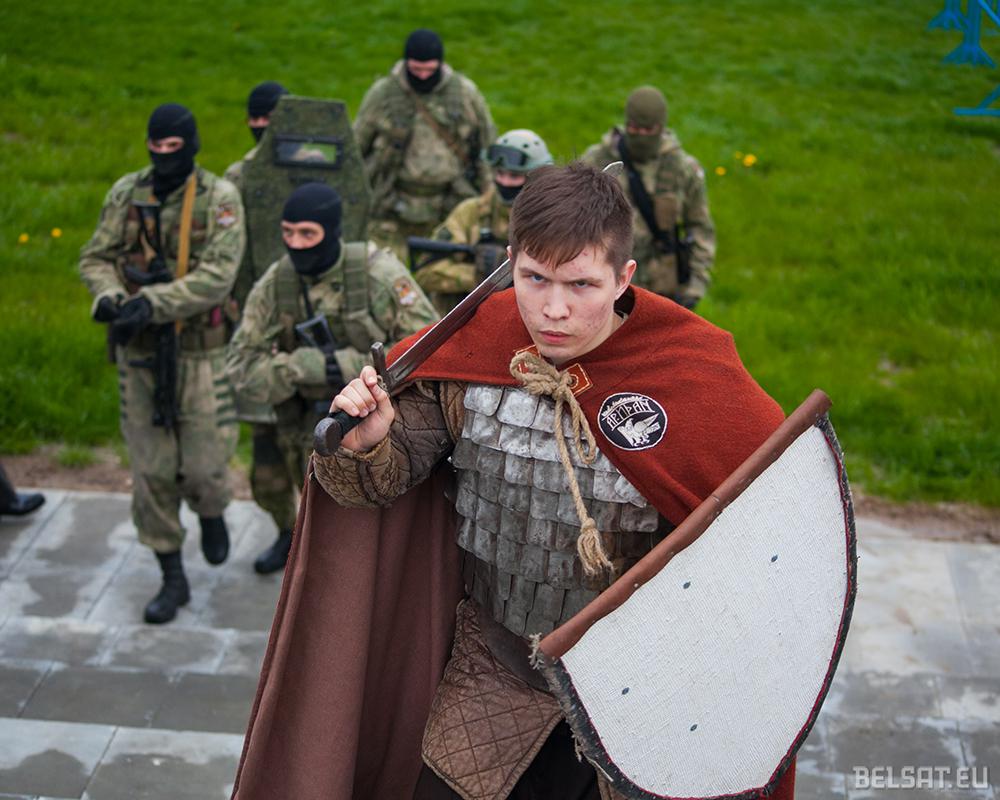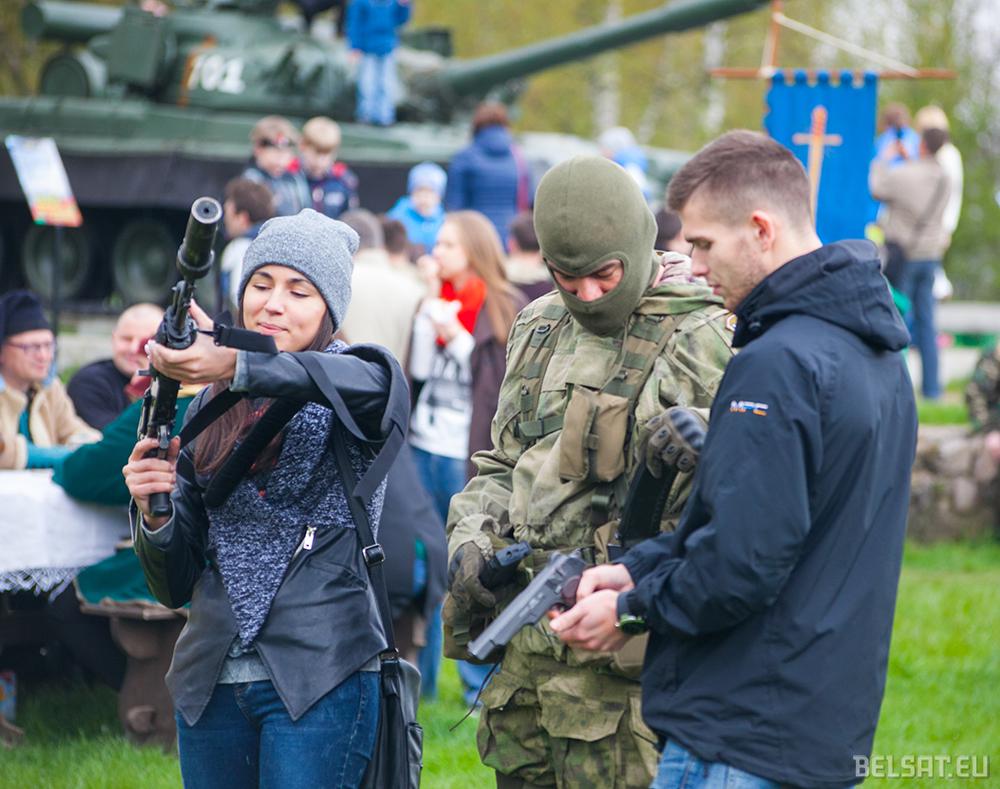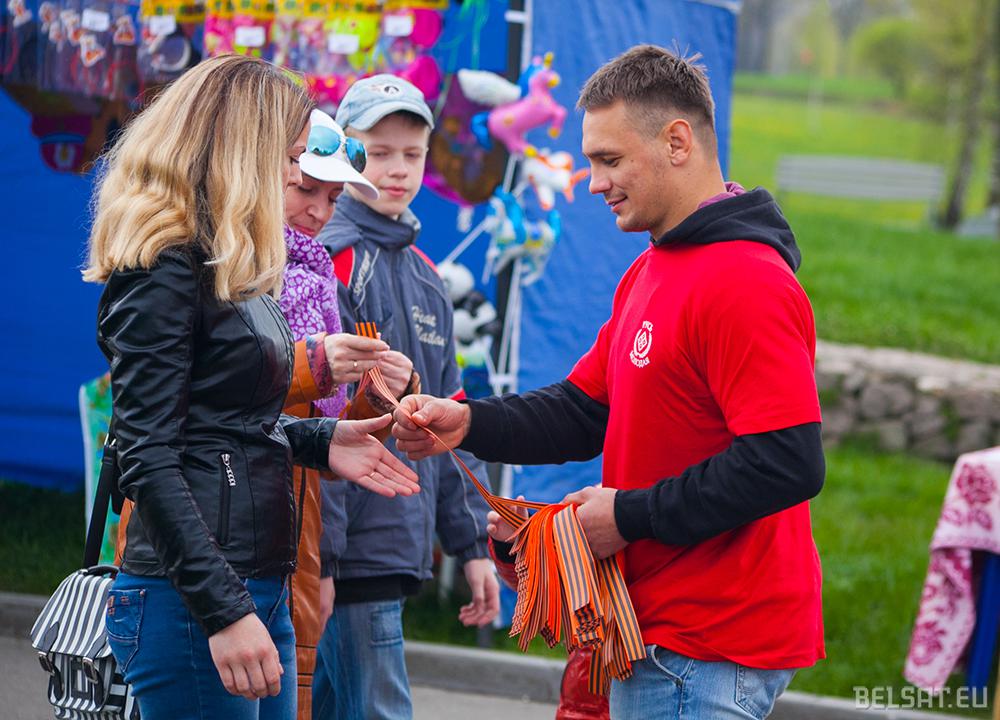

Slavic martial arts festival in Belarus: Cossacks may become pro-Russian separatists? (photos)
The XVI Festival of Slavic martial arts took place near the Mound of Glory in the Belarusian city of Hrodna. Compared with the event a year earlier, the turnout was quite small: at the beginning of the show the number of its participants exceeded that of its viewers.
During the solemn ceremony of laying flowers the organizers of the event addressed its participants – Cossacks, knights in Scottish kilts, airsoft amateurs.
Yelena Maslova, a representative of Rossotrudnichestvo, a pro-Kremlin fund promoting the Russian culture, language and values, repeatedly urged to remember that it was the USSR and the ‘Soviet people’. who defeated nazi Germany. At the same time, Alyaksandr Vyarsotski, the head of the main department of ideological work of Hrodna Regional Executive Committee, delivered his speech in the Belarusian language and pointedly used the definition ‘the Second World War’, not ‘the Great Patriotic War’ which was common in the Soviet Union and is widely spread in present-day Russia.
The participants of the festival are engaged in a broad range of activities: there were representatives of knight clubs and medieval re-enactors of the Scottish infantry, Cossacks from Hrodna, Babruysk, Tver, youngsters from military and patriotic organizations and even airsoft amateurs. They took turns showing their skills in fencing, riding, ‘hostage release’ and ‘saving the wounded’.
RuMol (the pro-Russian organization Young Russia) was the least to fit into the concept of ‘Slavic martial arts’. Starting to distributing St. George ribbons at the festival, its representatives, however, had to quickly leave after being instructed by the organizers.
No Russian imperial flags have been seen this year. According to Cossacks, most of them are supporters of the Belarusian statehood and defenders of the Matherland. A Cossack has no nationality, he defends the country in which he lives, they say.
But if one takes a step further, the truth turns out to be rather. Sometimes it is enough to simply ask what a Cossack knows about Belarus. For example, Cossack Mikhail who introduced himself Ataman of the Great Don Army was plain with journalists:
“Hrodna has been a Slavic city since Adam was a boy. Here, 80% of residents are Orthodox Christians, 70% are Russians. They even have Russias passports! Think, for instance, of the city’s leadership, of each engineer or specialist who worked in Hrodna in the Soviet times – all of them came from Russia, or they were born into the families of officers who served here. Do you really think that their children who were born here are not Russians?!”
See also: Wishful thinking. ‘Russian Spring’ in Minsk (photo)
АК, belsat.eu




















